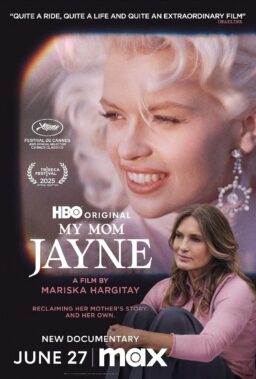LOS ANGELES — Everyone expected Steven Spielberg and his great film, “Schindler's List,” to dominate the 66th annual Academy Awards here Monday night, and they did – with seven Oscars, including best picture and director. But there was no sense of anticlimax; it was one of the most thrilling nights in Oscar history. As academy members rose for two standing ovations, they were obviously moved by Spielberg’s triumph.
And if “Schindler’s List” dominated the evening, there was still room for upsets. Anna Paquin became the second-youngest Oscar winner in history when she surprised all the prognosticators and won the best supporting actress award. Front-runners won the other lead categories. Tom Hanks won as best actor for “Philadelphia“; Holly Hunter, best actress for “The Piano,” and Tommy Lee Jones, supporting actor for “The Fugitive.”
Hanks earned his Oscar with a portrayal of a lawyer dying of AIDS in “Philadelphia.” In his speech, he delivered a poetic evocation of gay men in heaven, where the “streets are crowded with too many angels.”
Accepting her award for best actress in “The Piano,” Holly Hunter continued the durable winner’s tradition of thanking her piano teacher, but with obvious reason: “When I was 6 years old, I started pretending to play the piano on the windowsill of my bedroom. My parents saw I wouldn’t give up, so they got me a cardboard keyboard, and when that wasn’t enough, they got me a real piano, and lessons.”
The academy made the evening into a celebration of “Schindler’s List” and a coronation of Steven Spielberg. His “Jurassic Park” added three more Oscars to make an evening’s total of 10, reminding everyone that in one 12-month period he made the year’s best film and the biggest box-office champ of all time. (Only Cecil B. de Mille’s 11 Oscars for “Ben Hur” topped Spielberg’s one-night total.)
If the academy had until now withheld its top awards from Spielberg – some said from jealousy or spite – it now rose up to embrace him.
“This is the best drink of water after the longest drought in my life,” Spielberg said after winning for best picture. “There are 350,000 survivors of the Holocaust alive today. I implore all the educators who are watching this program – please do not allow the Holocaust to remain a footnote to history. Please listen to the echoes and the ghosts.”
Jones, winner in the best supporting actor category for his relentless U.S. marshal in “The Fugitive,” came onstage with his head shaved for his current role, which made him look more like fellow nominee John Malkovich. “This is the greatest award an actor can receive,” he told the voters. “The only thing a man can say at a time like this is, ‘I am not really bald.’ ”
Jones’ win upset some predictions that newcomer Ralph Fiennes, as the Nazi commandant in “Schindler’s List,” might benefit from the Schindler sweep. But Jones had been considered the front-runner ever since the nominations were announced, for a role that capped the recent flowering of his career in films like “JFK” and “Heaven and Earth.”
Anna Paquin’s win as best supporting actress was the evening’s biggest surprise. The 11-year-old actress, who played Holly Hunter’s fierce-willed daughter in “The Piano,” was the second-youngest winner ever, after Tatum O'Neal. She said backstage that she was only 9 when the film was made. “It’s pretty cool” to win, she told the press, adding that she didn’t “have a clue” where she’d put the statuette. Rock superstar Bruce Springsteen won in the best song category with “Streets of Philadelphia,” from “Philadelphia,” which he had just finished performing live on the telecast.
“Gee, this is the first song I ever wrote for a motion picture, so I guess it’s all downhill from here,” he told the academy.
The “Schindler’s List” sweep continued with an Oscar for composer John Williams’ original score, Janusz Kaminski’s lyrical black-and-white cinematography, Michael Kahn’s editing and Steven Zaillian’s adapted screenplay.
Kaminski, a graduate of Chicago’s Columbia College, said black-and-white was much better suited to the film’s harrowing subject matter, the Holocaust, than color would have been. Born in Poland, Kaminski returned there to film the movie. Asked how it touched on his native land’s experience of the Holocaust, he said he hoped it would be part of a process of healing and remembering.
Zaillian, who adapted “Schindler’s List” from the novel by Thomas Keneally, dedicated his award to his father, and to “the memory of those whose names are not on Schindler’s List.”
First-time host Whoopi Goldberg, aware of speculation that she might venture into politically delicate subject areas, kidded the Academy with a litany of them, right up front, ticking off everything from “save the whales” to “let Frank Sinatra finish!” Making her first entrance in an elegant gown that went against her trademark image of scruffy casualness, she seemed poised and confident on the big bare stage, in front of a billion TV viewers.











